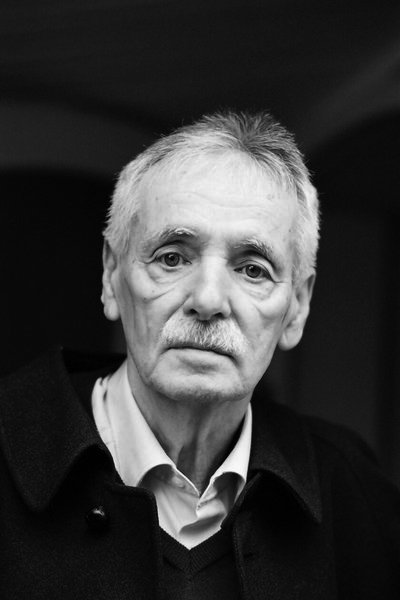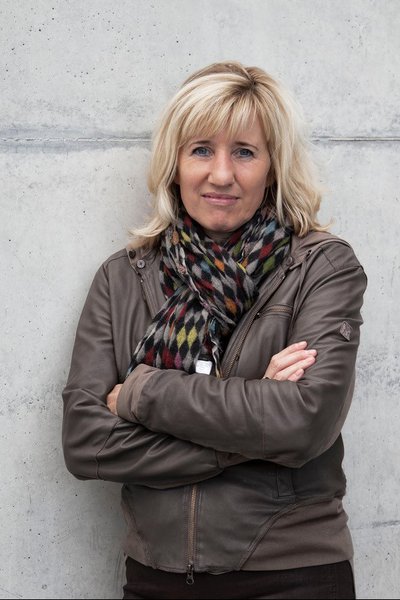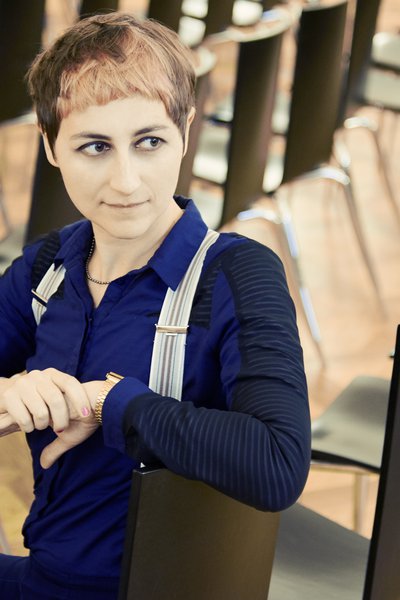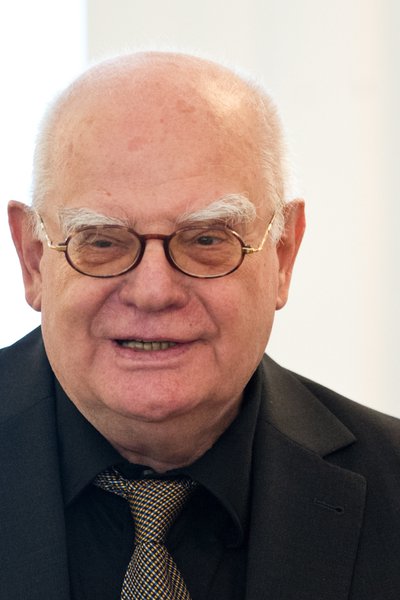Guntram Vesper is the first winner of the “Erich Loest Prize”, offered by the Sparkasse Leipzig Media Foundation in memory of the writer Erich Loest from Leipzig who died in 2013. The prize is endowed with 10,000 euros. Guntram Vesper was born in 1941 in Frohburg, East Germany, and has lived in western Germany since 1957. In 1967 he read from his works at the last meeting of “Gruppe 47″. His oeuvre is characterised by his early volumes of poems and, later on, especially by a variety of novels, as well as essays and radio plays. Guntram Vesper has received numerous awards for his work, such as the “Peter Huchel Prize” in 1985 and the honorary award of the “Deutsche Schillerstiftung” (German Schiller Foundation) in 2006. He received the “Leipzig Book Fair Prize” in 2016 for his novel Frohburg, which takes a closer look at his Saxon hometown in times of dictatorship.




Guntram Vesper †
Ines Geipel
Ines Geipel, born in Dresden in 1960, is a writer and Professor of Verse arts at Ernst Busch Academy of Dramatic Arts in Berlin. After studying German in Jena, she fled to West Germany in 1989 and studied philosophy and sociology in Darmstadt. Her first book came out in 1996.
The central theme of her literary work is the German history of violence, both National Socialism and the GDR dictatorship. Her novels Das Heft (The Notebook, 1999), Heimspiel (Home Game, 2005), Tochter des Diktators (Daughter of the Dictator, 2017), her personal essays Generation Mauer. Ein Proträt (Generation Wall. A Portrait, 2015), Umkämpfte Zone. Mein Bruder, der Osten und der Hass (Contested Zone. My Brother, the East and Hate, 2019), Schöner Neuer Himmel. Aus dem Militärlabor des Ostens (Brave New Heaven. From the Military Laboratory of the East, 2022) or their literary reports Verlorene Spiele. Journal eines Dopingprozesses (Lost Games. Journal of a doping trial, 2001), Für heute reicht’s. Amok in Erfurt (That's enough for today. Amok in Erfurt, 2004) and Seelenriss (Teared Soul, 2010), which have often stimulated public debate. Since 2005, she has published the Verschwiegene Bibliothek (Secretive Library), a ten-volume edition of authors and texts that were not allowed to be published in the GDR together with Joachim Walther.
Geipel has received several awards for her works, but also for her social commitment, such as the Bundesverdienstkreuz am Bande (German Federal Cross of Merit on Ribbon) in 2011, the Lessing Prize for Criticism in 2020 and the Marieluise Fleißer Prize in 2021.
Ulrike Almut Sandig
Born and grown up in Saxony, Ulrike Almut Sandig now lives in Berlin together with her family. The first literary text she published was on posters and post cards giving them to people on the street. Sandig's first poem volumes Zunder (Tinder, 2005) and Streumen (Scatter, 2007) were published at Connewitzer Verlagsbuchhandlung Peter Hinke in Leipzig. Next works published by Sandig were Flamingos (2010) and Buch gegen das Verschwinden (Book against disappearing, 2015), and Dickicht (Thicket, 2011).
For her public music performances, she closely collaborates with composers and filmmakers, most recently with the rapper and poet Grigory Semenchuk (Ukraine) and the Rockband Alif (India). In 2017 Sandig was co-publisher of the Yearbook of Lyric, also poet in residence at the University for Music and Dance in Colonge. In 2020, she published her first Novel Monster wie wir (Monsters like us).
Hans Joachim Schädlich
Hans Joachim Schädlich is the Erich Loest Prize laureate 2019.
Hans Joachim Schädlich was born as the son of a merchant in 1935 in Reichenbach in Vogtland, Saxony, where he also attended school. From 1954 to 1959 he studied German language and literature as well as linguistics at Humboldt University in Berlin and Leipzig University, where he completed his doctorate with a thesis on the phonology of the dialect in the Eastern Vogtland area. Schädlich subsequently worked as a research assistant at the Academy of Sciences of the GDR in Berlin, before being relieved of his post due to his protests against the expatriation of Wolf Biermann. In 1977 his application to leave the country was granted and he has lived in West Berlin since 1979.
Schädlich presented his first literary texts in the late 1960s, but was not allowed to publish them in the GDR. In 1986 Schädlich presented his first novel, Tallhover, which helped to establish him in the West German literature scene. The book was followed by numerous novels, collections of stories, essays and articles, and most recently Felix und Felka.